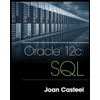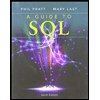erminology stored in each cell of the table below, choose a corresponding key point from the Hints section below and put the number (not the text). Some choices may be used multiple times or not at all. All you have to do is pick one from the hints section for each terminology it should be pretty simple! Dictionary(map) ADT: Quicksort: Mergesort: Radix sort over big integer numbers: Insertion sort: Selection sort: Heapsort: Counting sort over a small range of integers: Bucket sort: Bubble sort: Depth-First-Search: Bellman-Ford’s algorithm: Prim’s algorithm: Dijkstra’s algorithm: 0-1 knapsack problem: Hints : sorting: continuously swapping elements while finding the next number to add in the sorted sublist sorting: an improved selection sort - extracting the root
erminology stored in each cell of the table below, choose a corresponding key point from the Hints section below and put the number (not the text). Some choices may be used multiple times or not at all. All you have to do is pick one from the hints section for each terminology it should be pretty simple! Dictionary(map) ADT: Quicksort: Mergesort: Radix sort over big integer numbers: Insertion sort: Selection sort: Heapsort: Counting sort over a small range of integers: Bucket sort: Bubble sort: Depth-First-Search: Bellman-Ford’s algorithm: Prim’s algorithm: Dijkstra’s algorithm: 0-1 knapsack problem: Hints : sorting: continuously swapping elements while finding the next number to add in the sorted sublist sorting: an improved selection sort - extracting the root
Chapter5: Working With Excel Tables, Pivottables, And Pivotcharts
Section: Chapter Questions
Problem 11RA
Related questions
Question
For the terminology stored in each cell of the table below, choose a corresponding key point from the Hints section below and put the number (not the text). Some choices may be used multiple times or not at all.
All you have to do is pick one from the hints section for each terminology it should be pretty simple!
| Dictionary(map) ADT: | Quicksort: | Mergesort: |
Radix sort over big integer numbers: |
Insertion sort: |
| Selection sort: | Heapsort: |
Counting sort over a small range of integers: |
Bucket sort: | Bubble sort: |
|
Depth-First-Search: |
Bellman-Ford’s |
Prim’s algorithm: | Dijkstra’s algorithm: | 0-1 knapsack problem: |
Hints :
- sorting: continuously swapping elements while finding the next number to add in the sorted sublist
- sorting: an improved selection sort - extracting the root of a binary tree to get the maximal/minimal key
- sorting: removing one element from the input data, then finding the location it belongs within the sorted sublist, and inserts it there
- sorting: in general, sorting the least significant position first
- sorting: finding the smallest element in the unsorted sublist
- sorting: partition into two sub-arrays around a pivot value then making recursive calls
- sorting: recursively dividing into two sub-arrays first then merge them to produce new sorted sublists
- sorting: parallel processing for all the input data
- sorting: its efficiency is heavily depending on the uniform distribution of input data
- sorting: non-comparison algorithm utilizing integer characteristics by counting the number of objects that have each distinct key value
- sorting: branch and bound among input data elements
- completely connected graph
- handling negative edge cost in finding the single-source shortest path
- finding values by key, not by positional information such as index
- a non-deterministic polynomial (NP) problem
- finding shortest paths from a source to all other nodes on the graph producing a shortest-path tree
- a dynamic
programming solution - a greedy choice solution
- tree of n-1 edges (n: number of vertices)
- use a queue to traverse an entire graph
- use a stack to traverse an entire graph
Expert Solution
This question has been solved!
Explore an expertly crafted, step-by-step solution for a thorough understanding of key concepts.
Step by step
Solved in 2 steps with 1 images

Knowledge Booster
Learn more about
Need a deep-dive on the concept behind this application? Look no further. Learn more about this topic, computer-science and related others by exploring similar questions and additional content below.Recommended textbooks for you

Np Ms Office 365/Excel 2016 I Ntermed
Computer Science
ISBN:
9781337508841
Author:
Carey
Publisher:
Cengage


A Guide to SQL
Computer Science
ISBN:
9781111527273
Author:
Philip J. Pratt
Publisher:
Course Technology Ptr

Np Ms Office 365/Excel 2016 I Ntermed
Computer Science
ISBN:
9781337508841
Author:
Carey
Publisher:
Cengage


A Guide to SQL
Computer Science
ISBN:
9781111527273
Author:
Philip J. Pratt
Publisher:
Course Technology Ptr

Programming Logic & Design Comprehensive
Computer Science
ISBN:
9781337669405
Author:
FARRELL
Publisher:
Cengage

COMPREHENSIVE MICROSOFT OFFICE 365 EXCE
Computer Science
ISBN:
9780357392676
Author:
FREUND, Steven
Publisher:
CENGAGE L
